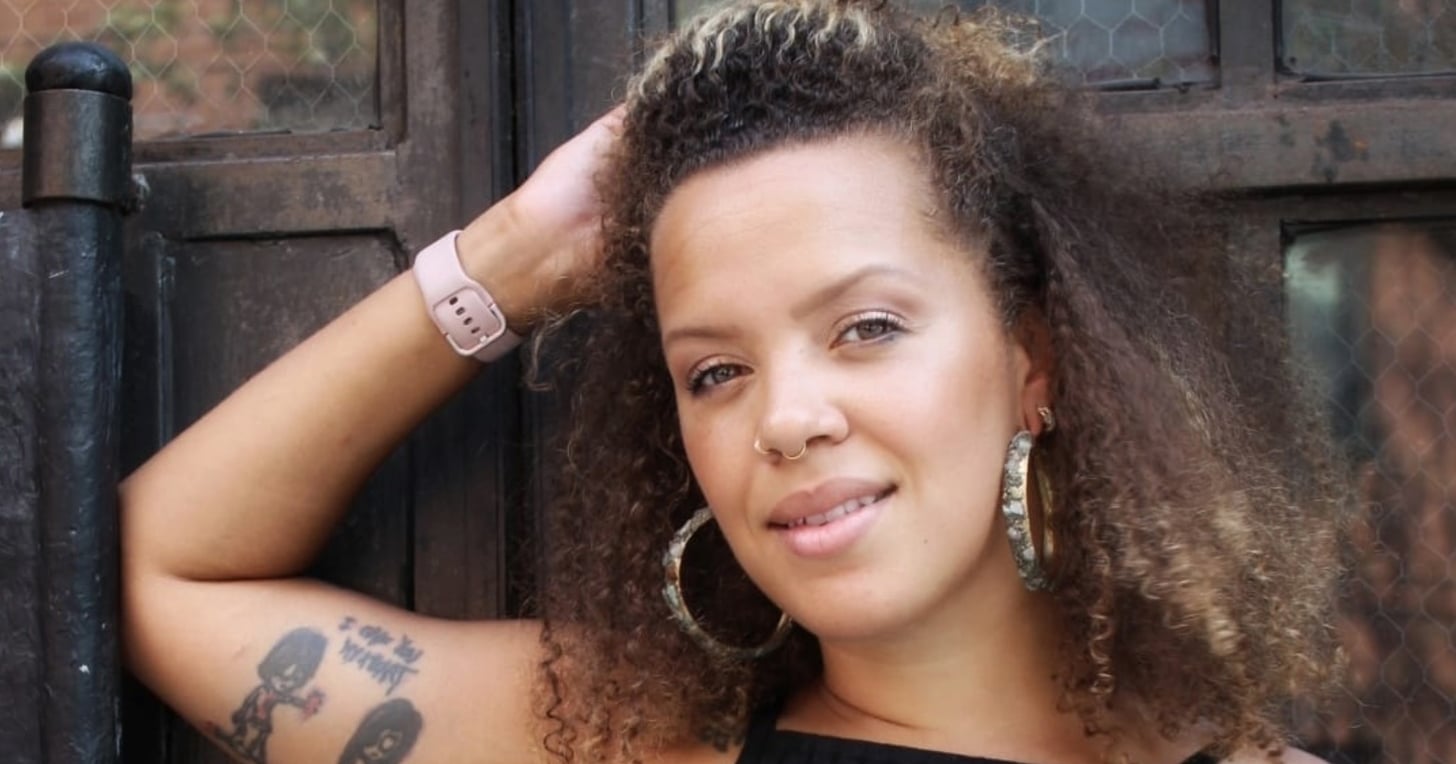
In a lot of cultures, hair is more than just hair. It’s pride, it’s power, it’s expression, and it’s a part of our identity. For many Latinas — curly-haired Afro-Latinas, especially — our relationship with our hair often begins with contradiction. We’re told to love it, but also encouraged to tame it. Embrace it, but only under certain conditions that are based on an ideology that isn’t even our own.
I grew up as my Puerto Rican mother’s first mixed-race child, and my hair was a beautiful challenge — loved but not always understood, which led us to local Dominican salons where straight hair was the norm. Torn between embracing my natural curls and conforming to expectations, I eventually found confidence in letting my curls be free.
But a year into my career as a hairstylist, I started noticing changes: intense scalp pain, swelling, inflammation, and a strange shininess to my scalp’s skin. It took me two years to see a dermatologist. Over the next few years, I bounced between doctors, misdiagnoses, medicated shampoos, and topical treatments, and still was left with no answers. As an established hairstylist at this point, I felt lost.
It wasn’t until after having my daughter in my late 20s that someone finally suggested a biopsy. I was around 27 or 28 when I got the confirmed diagnosis: lichen planopilaris (LPP), a rare autoimmune condition that causes scarring alopecia. Essentially, my immune system was attacking my hair follicles, and as they scarred over, the hair stopped growing back.
I tried everything, including oral treatments and even painful steroid shots to slow down the progression, but my crown began to show signs of balding. I had small, shiny, smooth spots that later scabbed and scarred. I had rocked short hair by choice before, but this time, it wasn’t my decision. I felt completely betrayed by my own body. The one thing I fought so passionately for as my source of physical expression had now been taken away from me without my consent.
As a hairstylist, the irony was heavy. I was the one helping women fall in love with their look, but I couldn’t do the same for myself. There were days when I missed the ability to switch it up, wear it big, or just feel carefree with my natural hair. I was losing myself while losing my hair.
There are so many misconceptions about alopecia. People often think of small bald patches or assume it’s caused by stress. They don’t know about the inflammation, the pain, or the rare scarring types like mine. One dermatologist even attributed my alopecia to my Blackness, assuming that I must have worn braids or used harsh chemicals. I didn’t. That was never part of my hair story.
There are so many misconceptions about alopecia. People often think of small bald patches or assume it’s caused by stress.
Thankfully, I eventually found providers who gave me better insight. They explained that LPP is more common in women of African American descent not because of how we style our hair, but because of our genetics. And once I had that clarity, I started advocating not just for myself, but for others, too. Now, I help my clients look good and stay healthy. I’ve spotted early signs of alopecia, caught vitamin deficiencies, and supported clients in getting answers they didn’t even know they needed. This condition has made me a better stylist — more informed, more empathetic, and more focused on wellness from the root (literally). I have learned so much about scalp health and natural ways to help cure some common issues.
LPP has taught me that beauty is deeper than hair and encompasses so much more than the traditional vision of a woman that we are conditioned to subscribe to. As a biracial Afro-Latina, I had to redefine what confidence truly looks like. I tell my daughter all the time, “Be kind. Be warm. Be smart. Be funny. That’s what makes you beautiful, because physical beauty can be taken away from you at the drop of a dime.” In this journey, I’ve learned that the real crown isn’t what’s on your head, it’s what’s in your heart.
If there’s one message I hope people take from my story, it’s that we are more than our hair. We are our laughter, our resilience, our culture; we are our fight and our joy. Afro-Latinas have carried so much history in our coils and curls, but also in our hearts. Let’s honor that. Let’s celebrate each other for how we show up, not just how we look.
And maybe, just maybe, the hairstylist who lost her hair is exactly who she was meant to become. Not just someone who creates beauty, but someone who reminds you that it was there all along; you just needed a little guidance.
Kys Clark is an Afro-Latina hairstylist, performer, and single mother from the Bronx with nearly two decades of experience behind the chair. She’s also a fitness instructor and a certified horticulture therapist, and she finds joy in nature, travel, and creative expression.







